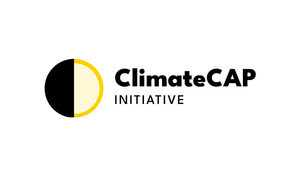
“Climate is impacting politics, society, and business operations around the world,” said Dr. Jeremiah Nelson, Director of the BBA and MBA programs at Catawba. “It is important for our future business leaders, our MBA students, to consider the operational and financial implications of climate. We look forward to providing them with the skills and insights regarding climate needed to lead throughout their careers.”
The ClimateCAP program is hosted by Duke University’s Fuqua School of Business in partnership with other top-tier business schools that have signed on as partner schools.
When it launched in 2016, ClimateCAP’s mission was to fill a gap in climate education. While some of its initiatives might impact a wide range of people, ClimateCAP is geared exclusively toward MBAs. ClimateCAP programming includes a portfolio of activities, but its flagship event is the ClimateCAP Summit. The first ClimateCAP Summit was held at Duke’s Fuqua School of Business in 2018 with 157 MBA students from 16 different business schools.
“We are proud to join the ClimateCAP Initiative as a partner school,” said Dr. Imran Chowdhury, Catawba’s Ketner School of Business Dean. “We look forward to learning from other schools within the ClimateCAP Partnership Network and are thankful to build upon our position as the first certified carbon-neutral institution in the southeast and North Carolina, and the thirteenth in the country.”
Chowdhury will be representing Catawba at the 2024 ClimateCap Summit at the Stephen M. Ross School of Business at the University of Michigan on February 9th and 10th. At the conference, Chowdhury will moderate a panel discussion on business responses to climate adaptation featuring Dr. Erik Petrovskis, Director of Environmental Compliance and Sustainability at Meijer, and Dr. Phillip Bruner, Faculty Director of the University of Washington’s Climate Risk Lab.
Catawba continues to build on its commitment to sustainability. The Ketner School of Business is collaborating with their Center for the Environment and Hurley School of Arts and Sciences on a new Sustainable Leadership MBA concentration.
Last year, Catawba became the first campus in the US to add Haven solar shelters from Research Triangle Park, North Carolina based Spotlight Solar. The shelters use bifacial solar panels for power generation on both sides to create clean energy that is stored in batteries under the tabletop with charging ports for students, faculty, and staff. The campus is also home to a solar-powered trash compactor bin from CleanCUBE which holds up to five times more waste compared to traditional bins.
Catawba added an electric vehicle (EV) charging station for visitors this fall. They also installed a solar sculpture created by Spotlight Solar.
Currently, Catawba is adding a closed-loop geothermal system in the heart of campus. The geothermal system will provide efficient and clean heating and cooling for the Corriher-Linn-Black Library, significantly reducing environmental impact. The closed-loop system operates by continuously circulating water through buried pipes. These pipes facilitate the exchange of heat with the ground, adapting to seasonal variations. The closed-loop system uses the same water repeatedly, eliminating the need for constant replenishment. Geothermal systems leverage the ground as an efficient storage solution, resulting in exceptionally high energy efficiency. The system stores excess heat generated during summer cooling in the ground, retrieving it in the winter for heating purposes.
"The invitation by ClimateCAP is an honor and is a testament to Catawba College and the Ketner School of Business' commitment to sustainability and climate leadership,” added Lee Ball, Executive Director of Catawba’s Center for the Environment. “This partnership will provide students and faculty real-world opportunities to help solve some of the most challenging issues of our time."
About ClimateCAP
The ClimateCAP Initiative, the leading business school education initiative on climate change and business, is managed by the Center for Energy, Development, and the Global Environment (EDGE) at Duke University’s Fuqua School of Business, with the support of more than 40+ Partner Schools. ClimateCAP programming includes a portfolio of activities, with key programming including the ClimateCAP MBA Summit, the ClimateCAP MBA Fellowship, MBA Academy, educational resource development, monthly newsletter, and curriculum and education collaborations through the Partner School network.
